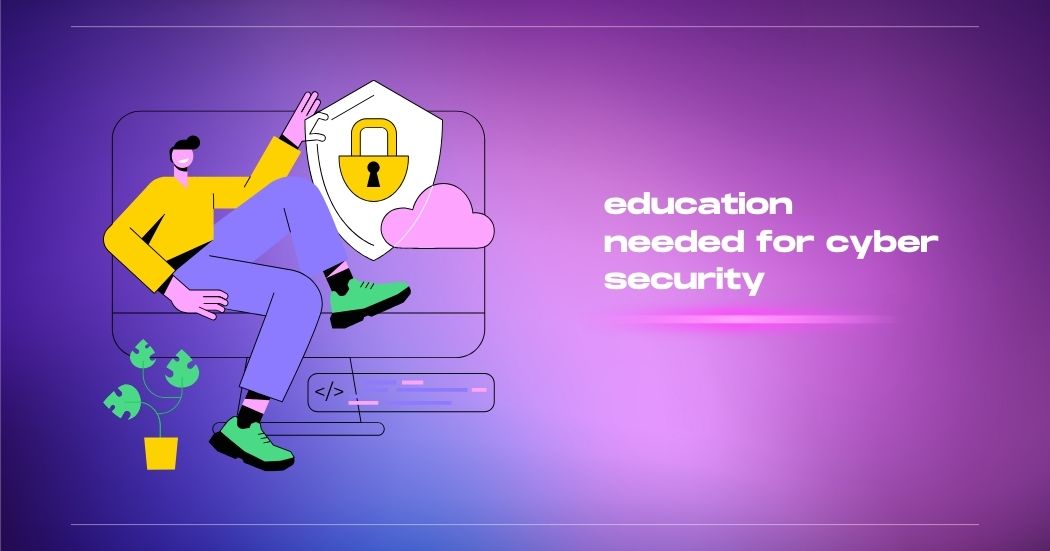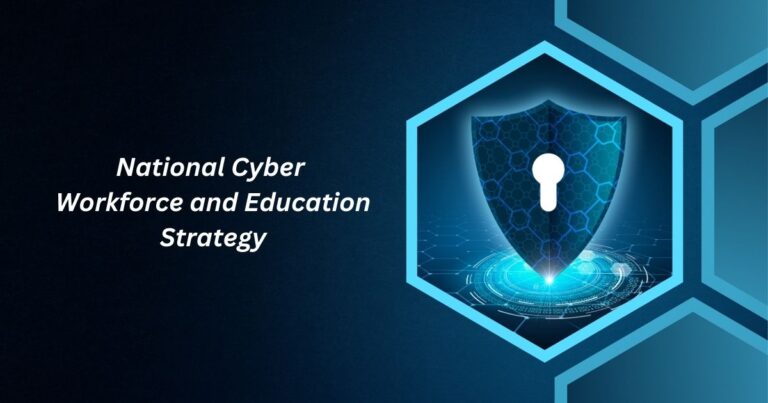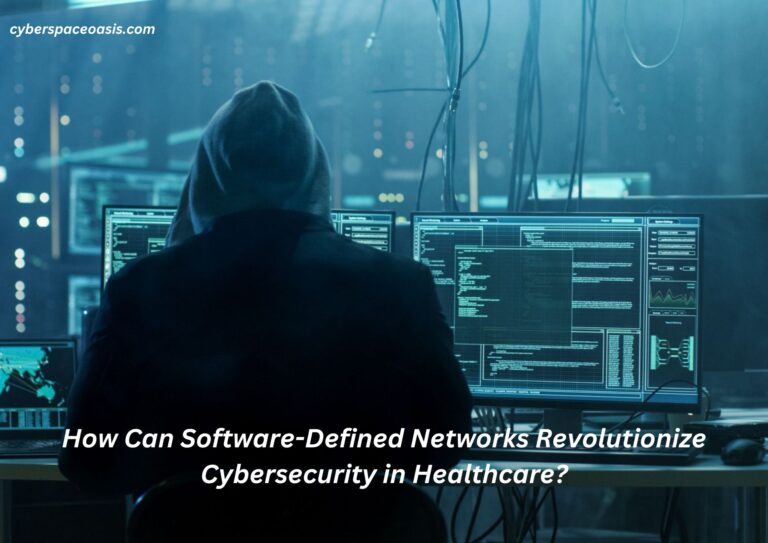
Introduction
Cyber safety is a vital discipline in these days’s digital age, wherein data breaches and cyber threats have grow to be increasingly more not unusual.
With the upward thrust of era, groups are prioritizing the protection of their sensitive statistics, making expert cyber safety experts extra critical than ever.

This article outlines severa academic pathways, certifications, and profession possibilities in cyber safety, guiding aspiring specialists on a manner to accumulate a a success profession in this dynamic and worthwhile difficulty.
Key Takeaways
- Educational Requirements: A aggregate of formal ranges, agency enterprise certifications, and practical experience is essential for success in cyber protection.
- Career Paths: Cyber safety offers severa roles starting from technical positions like safety analysts to managerial roles together with Chief Information Security Officers (CISOs).
- Continuous Learning: Due to the quick evolution of technology and threats, ongoing training and capacity enhancement are vital for staying applicable in the location.
What is the education for cyber security?
Formal Education
Education in cybersecurity generally starts with a bachelor’s degree in laptop technological know-how, data generation, or a associated vicinity, where foundational mind such as programming, networking, and systems management are included.
Many specialists moreover pursue advanced degrees, like a hold near’s in cybersecurity or records assurance, to benefit specialised knowledge.
Certifications and Practical Experience
In addition to formal training, acquiring organization-recognized certifications—together with CompTIA Security+, Certified Ethical Hacker (CEH), or Certified Information Systems Security Professional (CISSP)—is important for demonstrating records.
Practical enjoy is gained through internships, lab paintings, or get right of access to-degree positions in IT.
Continuous analyzing through workshops, webinars, and networking with peers is important on this unexpectedly evolving place.
Educational Pathways to Cyber Security
1. High School Preparation
High university college university college students interested by a cyber safety career can lay a strong foundation through manner of that specialize in topics which embody pc era, arithmetic, and statistics technology
Participating in relevant extracurricular sports activities, together with coding clubs and cyber competitions, can enhance essential wondering and trouble-fixing abilities.

Additionally, on-line resources and tutorials can offer publicity to programming languages and fundamental cyber protection thoughts, giving college college students a head begin of their destiny research.
2. Bachelor’s Degree
A bachelor’s degree is often the minimal requirement for get admission to-level positions in cyber protection. Commonly pursued majors embody Cyber Security, Computer Science, and Information Technology.
Degree packages commonly cowl vital topics consisting of community safety, ethical hacking, and danger manipulate, presenting college college students every theoretical information and sensible abilties.
Engaging in internships throughout this time can offer useful hands-on revel in, making graduates extra attractive to capability employers.
| Degree Type | Duration | Key Focus Areas |
|---|---|---|
| Bachelor’s Degree | 3-4 years | Network security, Risk management |
| Master’s Degree | 1-2 years | Leadership, Cyber law |
Certifications and Alternative Paths
1. Certifications
Certifications are important for setting up credibility inside the cyber security subject.
Industry-identified certifications along with Certified Information Systems Security Professional (CISSP) and Certified Ethical Hacker (CEH) validate a professional’s information and beautify their activity prospects.
These certifications often require passing rigorous assessments and reveal a dedication to ongoing schooling, making them attractive to employers looking for qualified applicants.
2. Bootcamps and Online Courses
For individuals in search of to go into the cyber protection area quick, coding bootcamps and online publications provide an accelerated mastering experience.
These programs frequently focus on precise skills, which includes penetration trying out, incident reaction, or network defense.
By offering extensive schooling in a brief time frame, they equip students with sensible knowledge and skills that may be implemented right now in actual-world situations, making them precious options for profession changers or the ones new to the sphere.
| Certification | Duration | Target Audience |
|---|---|---|
| CompTIA Security+ | Few months | Entry-level professionals |
| Certified Information Security Manager (CISM) | 6 months | Management professionals |
What Does a Career in Cyber Security Entail?
1. Job Responsibilities
A profession in cyber safety involves diverse obligations aimed at defensive an organization’s virtual assets.
Professionals might also engage in threat analysis, assessing potential dangers, and enforcing strategies to mitigate them.
They also increase incident response plans to deal with safety breaches and paintings to ensure compliance with applicable guidelines.
Depending at the position, obligations can consist of monitoring community hobby, accomplishing vulnerability assessments, and teaching workforce approximately protection great practices.
2. Skills Required
To excel in cyber safety, specialists need a numerous talent set.
Technical competencies, which includes talent in programming, expertise networking protocols, and familiarity with safety equipment, are crucial.
Additionally, gentle talents like analytical wondering, hassle-solving, and powerful communication are crucial for collaborating with group participants and conveying complex security principles to non-technical stakeholders.
Continuous ability enhancement is crucial, given the evolving nature of cyber threats.
Career Paths in Cyber Security

Career Paths in Cyber Security
1. Common Roles
The cyber security field offers a number profession paths catering to exclusive interests and skill units.
Common roles consist of Security Analyst, who video display units and defends IT infrastructures, and Penetration Tester, who simulates assaults to discover vulnerabilities.
Other roles may also include awareness on network safety, incident reaction, or compliance, permitting experts to concentrate on regions that align with their strengths and career desires.
2. Advanced Positions
As professionals advantage experience, they will boost to extra senior roles, including Security Consultant or Chief Information Security Officer (CISO).
In these positions, individuals regularly take on leadership responsibilities, overseeing an organization’s entire safety method and advising on pleasant practices.
Advanced roles generally require a deeper knowledge of each technical and managerial components, creating a master’s diploma or relevant certifications especially useful for career development.
How to Work in Cyber Security
1. Pursue Relevant Education
To embark on a career in cyber protection, obtaining a degree in a relevant area is vital.
Programs in cyber protection, pc technological know-how, or facts technology provide foundational know-how and abilities.
Engaging in hands-on tasks, internships, and networking with enterprise professionals also can decorate mastering and improve task potentialities upon graduation.
2. Gain Certifications and Experience
In addition to formal education, acquiring industry-recognized certifications can considerably beautify profession opportunities.
Certifications exhibit information and a dedication to the sector, making applicants extra appealing to employers.
Furthermore, gaining sensible revel in thru internships or access-stage positions is essential for growing hands-on capabilities and constructing an expert community.
Building a Professional Network
Building a professional network in cyber safety is critical for career improvement.
Engaging with enterprise experts thru occasions, forums, and social media systems like LinkedIn can open doorways to precious opportunities.
Attend conferences, webinars, and neighborhood meetups to satisfy peers and professionals within the area.
Joining relevant on line forums and discussion agencies can also facilitate knowledge sharing and networking.
Participating in community occasions, which include hackathons or cybersecurity competitions, enables one to construct realistic skills at the same time as connecting with like-minded individuals.
Networking no longer only complements your knowledge but additionally increases your visibility within the task marketplace, making it less complicated to study task openings and get referrals.
Building authentic relationships with professionals can cause mentorship opportunities that offer steering in the course of your career.
Best Degrees for Cyber Security After the 12th
After completing twelfth grade, pursuing a bachelor’s diploma in fields consisting of Cyber Security, Computer Science, or Information Technology is surprisingly endorsed.
A degree in Cyber Security focuses mainly on protecting structures and facts, providing specialized expertise in regions like network protection, cryptography, and hazard management.
A Computer Science diploma presents a broader understanding of programming, algorithms, and software program improvement, which can be essential for expertise the technical components of security.
Information Technology encompasses various topics, including device management and database management, equipping graduates with capabilities to manage and steady data systems.
Each of these programs gives a complete curriculum that combines theoretical foundations with practical studies, preparing students for the dynamic and evolving panorama of cyber protection.
Emerging Trends in Cyber Security Education
Cyberprotection schooling is evolving to meet the demands of a hastily converting technological panorama. One large trend is the increased recognition of specialization.
Areas along with cloud security, Internet of Things (IoT) safety, and mobile protection are gaining traction as organizations adopt these technologies.
As a result, educational programs are growing specialized tracks or certifications to put together college students for those niches.
Additionally, interdisciplinary processes have become more prominent in cyber security training.
Incorporating factors from psychology, commercial enterprise, and law permits college students to apprehend the broader implications of cyber threats.
This properly rounded angle is essential for growing complete techniques to fight cyber dangers and manage organizational security.
As the sector grows, educational institutions are adapting their curricula to ensure that graduates are equipped with the abilities needed to address complicated challenges.
FAQs
1. What degree is wonderful for a career in cybersecurity?
A bachelor’s degree in PC technology, statistics technology, or cybersecurity is generally advocated.
Some roles can also require or determine a draw’s diploma in a related region.
2. Are certifications critical in cybersecurity?
Yes, certifications that consist of CompTIA Security+, Certified Ethical Hacker (CEH), and Certified Information Systems Security Professional (CISSP) are important.
They show data and can decorate method opportunities.
Three. Is in advance revel in crucial to enter the arena?
While some get proper access to degree positions that might not require enjoyment, internships or associated artwork can be useful.
Practical revel in through labs or duties is especially valued.
Four. How can I gain sensible abilities in cybersecurity?
You can gain practical talents via internships, taking detail in cybersecurity competitions, becoming a member of clubs, or the use of online labs and simulation environments to exercise.
Five. What clean abilities are vital for cybersecurity professionals?
Critical wondering, hassle-solving, communication, and teamwork are critical slight capabilities.
Cybersecurity often includes taking things with numerous organizations and explaining technical mind to non-technical stakeholders.
6. How often do I need to replace my training in cybersecurity?
Given the evolving nature of the region, non-save you education is vital.
Professionals have to pursue ongoing schooling, attend workshops, and renew certifications regularly to stay contemporary with new threats and technology.
Conclusion
To excel within the discipline of cyber protection, it’s crucial to pursue applicable educational pathways while actively conducting professional networking.
Staying knowledgeable about rising developments, consisting of specialization and interdisciplinary strategies, will provide an aggressive aspect.
Building a strong professional network opens doorways to mentorship, job possibilities, and collaborative projects, which could considerably beautify your career trajectory.
As the call for for professional cyber protection experts keeps to upward push, specializing in each training and networking will prepare you to navigate the complexities of this dynamic industry efficiently.
Embrace lifelong learning and adaptability to live beforehand for your cyber protection profession.







